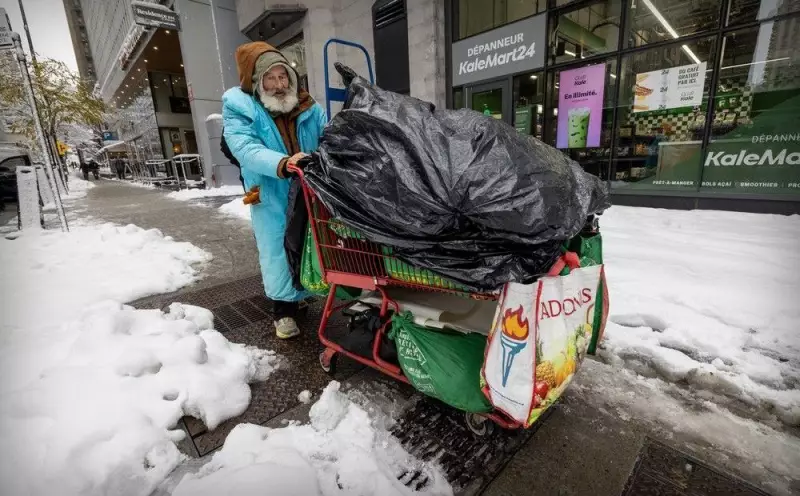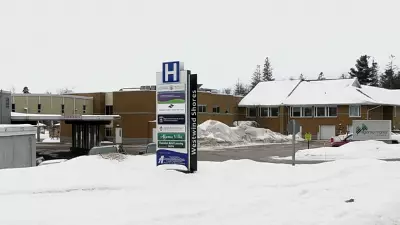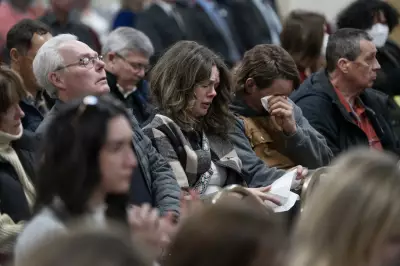
The first heavy snowstorm of the season arrived overnight Monday in Montreal, creating dangerous conditions for the city's unhoused population and placing immediate pressure on homeless services.
Shelters Overwhelmed by Early Demand
By the time Resilience Montreal homeless shelter opened its doors early Tuesday morning, a long line of shivering clients had already formed outside in the accumulating snow. A steady stream of people shuffled in throughout the morning, desperately seeking warmth and requesting winter jackets, boots, and any other items that could provide protection from the harsh conditions.
David Chapman, executive director of Resilience Montreal, watched the influx of clients with concern. He described the situation as another example of the city being caught unprepared by winter's arrival and the subsequent pressure it places on resources for the homeless.
"The city is still in the mindset of opening warming stations at the last minute every year," Chapman said during the busy morning. "There's a hesitancy to invest in warm places for the unhoused that exist year round."
Political Response to the Crisis
Mayor-elect Soraya Martinez Ferrada expressed concern about the sudden snowfall and its impact on Montreal's most vulnerable residents. Speaking at city hall on Tuesday, she confirmed she's taking action to ensure the city's shelter network is properly equipped to face the winter season.
Following up on her campaign promise to better support encampments in the short term, Martinez Ferrada said she has asked teams to visit camps across Montreal to verify the safety of people living there amid the new snow.
"I want to ensure that there are no safety risks at the moment, given the snow that just fell," she stated.
The mayor-elect added that she has requested a meeting with the city's director general and community organizations to assess the current situation and identify which measures can be implemented quickly.
Systemic Challenges and Proposed Solutions
Advocates and community organizations have consistently argued that Montreal's approach of opening temporary warming centers, rather than investing in permanent year-round solutions, puts the unhoused population at risk and forces organizations to scramble every winter.
For Chapman, the only viable solution involves rapidly expanding Montreal's shelter network across different neighborhoods. He noted that during Tuesday morning's operations alone, his shelter staff served approximately 500 breakfasts to those in need.
"There should be an accessible homeless resource in every neighbourhood," Chapman emphasized, echoing an approach Martinez Ferrada championed during her campaign.
The overcrowding at existing shelters drives some unhoused people away, Chapman explained, which can lead to more encampments with their associated risks and cohabitation issues that the city has previously faced.
Martinez Ferrada acknowledged the complexity of addressing homelessness in Montreal, stating, "It's complicated to address homelessness in Montreal. And we need to make it much simpler, which is what I'm working on — figuring out how I can give myself the means to act as quickly as possible."
As temperatures continue to drop, the urgent need for both immediate warming solutions and long-term strategies to address homelessness in Montreal becomes increasingly critical for the safety and survival of the city's most vulnerable residents.






